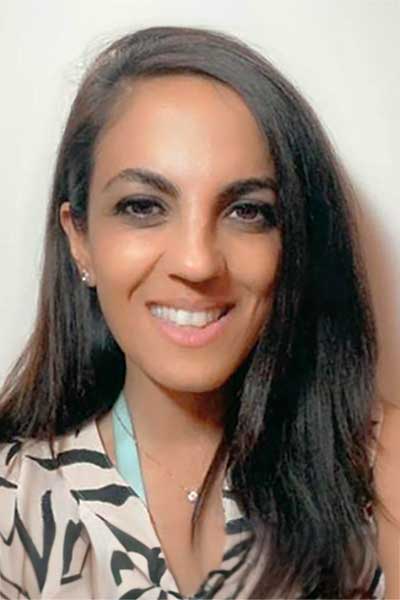Armchair diagnoses of imposter syndrome drive inequities, avoid accountability, and restrict growth, says this year’s Daltroy lecturer.

Puja Mehta, MD, MBBS, a rheumatologist with special interest in interstitial lung disease and hyperinflammation at University College London, United Kingdom, will deliver the Daltroy Lecture: Redefining Imposter Syndrome: Eliminating Bias and Transforming Culture on Sunday, Nov. 12, at 4 p.m. PT in Room 6A-B of the San Diego Convention Center. The lecture will be livestreamed and available for on-demand viewing within 24 hours of the session for registered ACR Convergence 2023 participants.
“The popular term ‘imposter syndrome’ is often misused. It occurs when self-doubt is disproportionate to ability,” Dr. Mehta said. “However, we really need to discuss the important concept of ‘testimonial injustice,’ which is when external bias and exclusion can evoke self-doubt, erode self-confidence, and make people feel like they don’t belong.”
She will discuss the complex interplay of competence, confidence, and credibility.
“The wrongly used label ‘imposter syndrome’ is often used as a reason to explain low confidence and can pathologize people,” Dr. Mehta said. “This label puts the onus on individuals and absolves institutions and leaders of their responsibility to self-examine and make changes to create an inclusive culture and belonging for everyone. Cultural competence and eliminating biases, e.g. sexism, racism or xenophobia, elitism, is a core part of that. We are all part of the problem, and we should all be part of the solution.”
The misattribution of the term imposter syndrome is present throughout medicine, within both clinical care and research settings, and impacts individuals, institutions, and patients, she noted, suggesting, “Perhaps we should call it what it is: bias and inequity.”
“The imposter-syndrome label limits people’s ability to achieve their full potential, stifles authenticity, creativity, and innovation, and ultimately, everyone suffers,” she continued. “We need to shift our focus to addressing testimonial injustice and bias and start changing our culture so everyone feels safe enough to bring their best selves to work.”
“We need to harness our agency and create the culture and community we want to live in. We need to be intentional in living our values and holding ourselves and others accountable with courageous and caring conversations to call people in to seeing the world from different lenses.”
— Puja Mehta, MD, MBBS
Rheumatology is not immune to these universal problems, where there is a dearth of diversity in leadership positions, Dr. Mehta said. Representation does matter, but when decisions are being made, she said it is important to have diversity beyond race and gender in the leadership at the table.
“What we need is cognitive diversity,” Dr. Mehta said. “Diversity of thought is difficult to measure, and that is why the easy metrics of race and gender are used as proxy markers, which are flawed and can still lead to echo chambers and group think. Allyship can help here.”
Change is hard, but not impossible, she asserts.
“Firstly, we need to recognize the need for change and that we are all capable of change, irrespective of age,” Dr. Mehta said. “We need to harness our agency and create the culture and community we want to live in. We need to be intentional in living our values and holding ourselves and others accountable with courageous and caring conversations to call people in to seeing the world from different lenses.”
Bi-directional mentorship, where leaders have the humility, insight, and courage to learn and grow from junior colleagues and value other people’s lived experiences, can help facilitate these changes.
“This will help challenge inequity and accepted norms,” Dr. Mehta said.
Further, by embracing conflict, we promote progress, she said.
“Respectful disagreements are healthy and absolutely vital. It’s the only way that we can interrogate the argument and refine our thinking to generate actionable solutions,” Dr. Mehta explained.
Emotional intelligence is crucial too, she said, but in academia there is greater emphasis on technical skills.
“Emotional intelligence and trust are such important facets of work and productivity, but are grossly undervalued,” Dr. Mehta said. “Relationships and respect are everything. Ultimately, that is what I want to convey in this year’s Daltroy lecture.”
Register Today for ACR Convergence 2025

If you haven’t registered for ACR Convergence 2025, register today to participate in this year’s premier rheumatology experience, October 24–29 in Chicago. All registered participants receive on-demand access to scientific sessions after the meeting through October 31, 2026.
